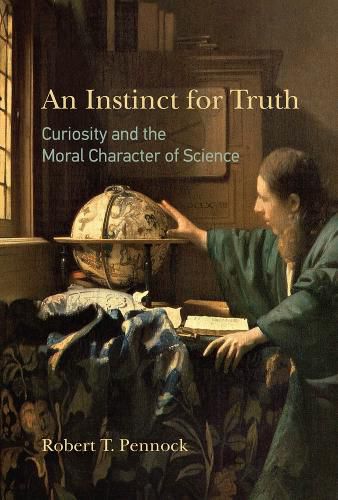Readings Newsletter
Become a Readings Member to make your shopping experience even easier.
Sign in or sign up for free!
You’re not far away from qualifying for FREE standard shipping within Australia
You’ve qualified for FREE standard shipping within Australia
The cart is loading…






An exploration of the scientific mindset-such character virtues as curiosity, veracity, attentiveness, and humility to evidence-and its importance for science, democracy, and human flourishing.Exemplary scientists have a characteristic way of viewing the world and their work- their mindset and methods all aim at discovering truths about nature. In An Instinct for Truth, Robert Pennock explores this scientific mindset and argues that what Charles Darwin called an instinct for truth, knowledge, and discovery has a tacit moral structure-that it is important not only for scientific excellence and integrity but also for democracy and human flourishing. In an era of post-truth, the scientific drive to discover empirical truths has a special value. Taking a virtue-theoretic perspective, Pennock explores curiosity, veracity, skepticism, humility to evidence, and other scientific virtues and vices. He explains that curiosity is the most distinctive element of the scientific character, by which other norms are shaped; discusses the passionate nature of scientific attentiveness; and calls for science education not only to teach scientific findings and methods but also to nurture the scientific mindset and its core values. Drawing on historical sources as well as a sociological study of more than a thousand scientists, Pennock’s philosophical account is grounded in values that scientists themselves recognize they should aspire to. Pennock argues that epistemic and ethical values are normatively interconnected, and that for science and society to flourish, we need not just a philosophy of science, but a philosophy of the scientist.
$9.00 standard shipping within Australia
FREE standard shipping within Australia for orders over $100.00
Express & International shipping calculated at checkout
An exploration of the scientific mindset-such character virtues as curiosity, veracity, attentiveness, and humility to evidence-and its importance for science, democracy, and human flourishing.Exemplary scientists have a characteristic way of viewing the world and their work- their mindset and methods all aim at discovering truths about nature. In An Instinct for Truth, Robert Pennock explores this scientific mindset and argues that what Charles Darwin called an instinct for truth, knowledge, and discovery has a tacit moral structure-that it is important not only for scientific excellence and integrity but also for democracy and human flourishing. In an era of post-truth, the scientific drive to discover empirical truths has a special value. Taking a virtue-theoretic perspective, Pennock explores curiosity, veracity, skepticism, humility to evidence, and other scientific virtues and vices. He explains that curiosity is the most distinctive element of the scientific character, by which other norms are shaped; discusses the passionate nature of scientific attentiveness; and calls for science education not only to teach scientific findings and methods but also to nurture the scientific mindset and its core values. Drawing on historical sources as well as a sociological study of more than a thousand scientists, Pennock’s philosophical account is grounded in values that scientists themselves recognize they should aspire to. Pennock argues that epistemic and ethical values are normatively interconnected, and that for science and society to flourish, we need not just a philosophy of science, but a philosophy of the scientist.